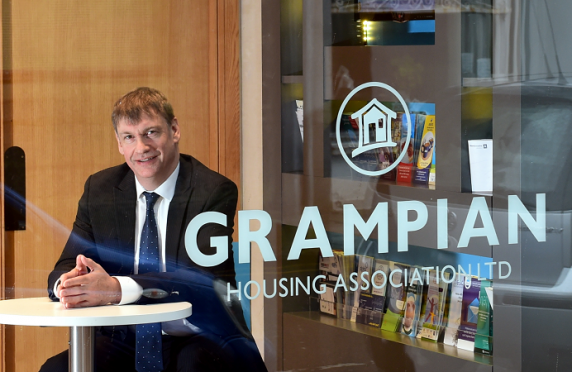I sometimes feel a bit of an entryist in the Chamber of Commerce.
For those that are old enough to remember the hair, the donkey jackets and the badges, entryism was an attempt in the 1970’s and 80’s by political groups to influence mainstream parties from the inside.
The most famous was the Militant Tendency but they cropped up in all parts of the political spectrum. I even heard the more recent group “Progress”, the forum associated with Tony Blair, tarred with the same brush. Although I’m not sure you can be entryist if you already have considerable power; maybe I’m splitting hairs.
So here I am, the CEO of a social enterprise, a charity, rubbing shoulders with the business titans of the north-east, my budget suit looking decidedly unkempt.
And yet what is good for those that Grampian house is also good for business and vice-versa. I may be a wishy washy liberal (in the American sense) but I see enterprise and commerce as a great creative force, a route out of poverty for many, an ancient human activity and one foundation of a healthy society.
Whatever happens we need Scotland to keep making and selling.
Grampian recognises that business needs affordable housing to thrive in a high demand market like Aberdeen and more so in rural areas, and sees providing homes for key workers as part of its mission.
Like I’m fond of saying, we don’t build homes for people to “enjoy” their poverty in. We want them in work, starting their own businesses, growing our economy.
So what do I think when commerce feels under threat? Concerned and anxious to find a solution.
The Chamber met this week to talk about Brexit and the prospect of a second independence referendum. I don’t know what I expected but probably something along the lines of wailing and gnashing of teeth. Not so. Although another referendum creates a host of new scenarios for CEOs to lose sleep over, as one member of the Board said, there is already so much uncertainty around.
What seems certain is another dunt to our GDP, with academics and treasury number crunchers predicting between a 3% and 8% cut in the size of the economy from leaving the EU, and Scotland more exposed than most parts of the UK to the effect.
So, what are those scenarios? If Scotland decides to stay in the UK, there is soft Brexit within the single market or the hard variety with the UK cast out into the choppy waters of the WTO and negotiating a host of bilateral trade deals over the next ten or so years.
An independence vote before Brexit takes effect could mean Scotland inheriting the UK’s membership, taking EU mood music at face value, but post-Brexit the process gets complicated.
Then there are so many variations on each theme, depending upon how the UK and the EU handle the next two years and what is on offer on both sides. Business abhors a vacuum, and uncertainty gives it the vapours. But that is all that is on offer at the moment.
The business community has some basic asks. Firstly, for the Chamber to be an honest broker, doing what it did in 2014, laying out the facts. The media scaremongering that dogged both referenda helped no one, so the fourth estate needs to find some objectivity and balance.
Commerce and the general population also need answers to unanswered questions. What about the currency? What will the process look like?
Although you don’t run a country like a business, commercial heads want to know what the national “P&L” account and the “balance sheet” of assets and liabilities looks like.
And so should we all. The SNP and the wider independence movement put a lot of effort into proposals two years ago, but as an outside observer, it looked too much like an attempt to avoid scaring the horses, and in doing so was incoherent in key areas.
A second referendum has to be strong on detail and those writing the story on both sides need to address these concerns and talk to the chambers of commerce across Scotland.
Neil Clapperton, chief executive, Grampian Housing Association
